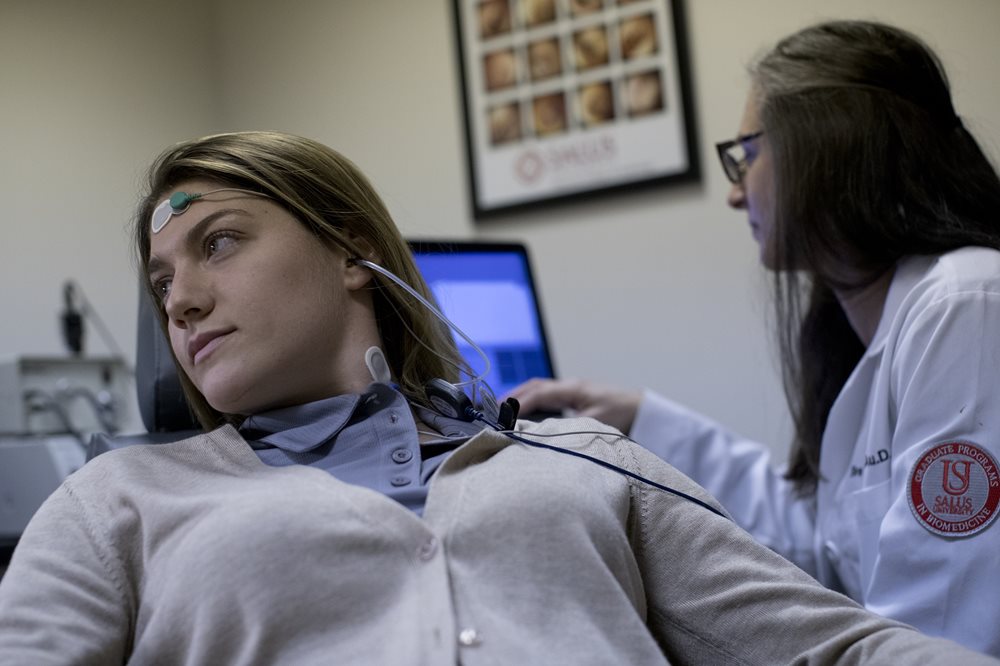Managing Balance Disorders
 It’s Balance Awareness Week, which is a great time to call attention to the importance of good balance. According to the Vestibular Disorders Association, over 69 million Americans suffer from chronic imbalance associated with a vestibular disorder. This disturbance causes an individual to feel unsteady, woozy, or have the sensation of movement, spinning or floating. A portion of our inner ear, the vestibular system, is dedicated to sensing changes in motion and assisting our balance system. The vestibular system, which is comprised of five distinct sensors per ear, acts with other systems in our body, such as the visual and proprioceptive systems, which is the sense of self-movement and body position, to maintain the body's position in space. These three systems, along with the brain and nervous system can be a source of balance problems.
It’s Balance Awareness Week, which is a great time to call attention to the importance of good balance. According to the Vestibular Disorders Association, over 69 million Americans suffer from chronic imbalance associated with a vestibular disorder. This disturbance causes an individual to feel unsteady, woozy, or have the sensation of movement, spinning or floating. A portion of our inner ear, the vestibular system, is dedicated to sensing changes in motion and assisting our balance system. The vestibular system, which is comprised of five distinct sensors per ear, acts with other systems in our body, such as the visual and proprioceptive systems, which is the sense of self-movement and body position, to maintain the body's position in space. These three systems, along with the brain and nervous system can be a source of balance problems.
Whether it comes on gradually or suddenly, bouts of dizziness, vertigo, and nausea can make many of life’s more routine tasks virtually impossible. Often, dizziness or balance disorders can cause or contribute to falls, which according to the Centers for Disease Control (CDC) are the number one cause of injuries and deaths in older adults.
Fortunately, dizziness and balance disorders can be successfully managed and treated with a proper diagnosis.
 There are a variety of causes for vertigo. The most common are inner ear disorders, viral infections, migraines, Ménière's disease (an inner-ear disorder involving a buildup of excessive fluid), and benign paroxysmal positional vertigo (a condition that triggers vertigo symptoms based upon specific changes in the position of one’s head).
There are a variety of causes for vertigo. The most common are inner ear disorders, viral infections, migraines, Ménière's disease (an inner-ear disorder involving a buildup of excessive fluid), and benign paroxysmal positional vertigo (a condition that triggers vertigo symptoms based upon specific changes in the position of one’s head).
Treatment options are available and vary depending on what causes the vertigo. For those with one of the most common causes of vertigo, benign paroxysmal positional vertigo, tiny calcium crystals (otoconia) become dislodged and float into one of the "balance canals." People will often experience a brief, but intense spinning sensation whenever they lie down or tilt their head back. This is treated in the office at the Pennsylvania Ear Institute with a simple repositioning maneuver that helps move the otoconia to the proper spot within the inner ear.
Audiologists at the Pennsylvania Ear Institute (PEI) are experts in diagnosing and treating balance and vestibular disorders. Using some of the latest, technical equipment available, audiologists will perform various tests to properly identify balance disorders.
If you or a loved one are experiencing vertigo, contact PEI for a balance evaluation.